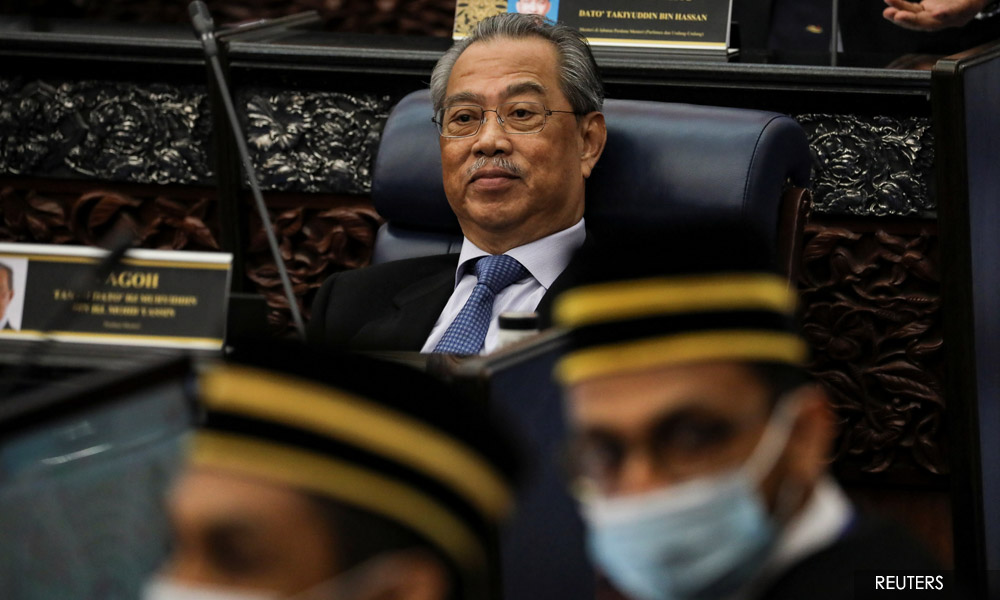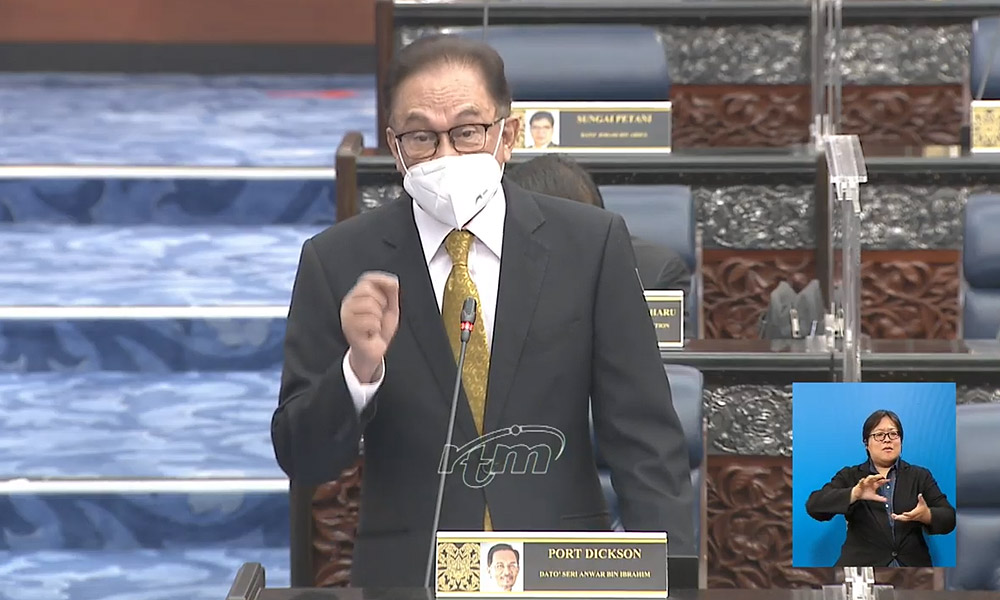When you are under threat, what would you do?
You could be like former prime minister Muhyiddin Yassin and look inwards on ways to strengthen your supporters’ loyalty to you. You do this by giving them high positions, so they are dependent on you.
Once they are loyal, the assumption is that you will be strong enough to attack the opposition. But this strategy has its limits.
This was proven by Muhyiddin’s administration when he became beholden to supporters’ weather-changing minds and constant threats with better offers from the other side.
Money could buy temporary support, but it does not weaken external threats.
Or you could adopt a different strategy by looking outwards like Prime Minister Ismail Sabri Yaakob. You could focus on weakening the threat of your enemies by offering them exactly what they want.
By offering a slew of reforms, Ismail Sabri virtually guaranteed his government’s medium-term stability. He was able to do this because of two reasons.
Firstly, his mindset of staying as a short-term prime minister meant that he was more open to reforms such as a term limit on the prime minister post and ministerial status for the opposition leader.

Secondly, he learned from his predecessor, Muhyiddin, that constantly looking over your shoulder for new threats is exhausting. Expanding the network of benefits to the opposition would tame the tiger.
While the memorandum of understanding (MOU) with the opposition may appear as a compromise, there are multiple strategic benefits to Ismail Sabri’s government.
Namely, how to deal, how to fail, and how to win. Subtle but lethal, in the style of Ismail Sabri.
How to deal
Ismail Sabri knew that any reform proposal would be irresistible to the opposition.
Muhyiddin’s 11th-hour reform proposal tested the waters for Ismail, and it showed that the opposition was open to negotiation. In truth, the opposition did not have a choice. They could not stand on a reform platform and reject sensible reforms.
But it is what happens after the MOU that truly makes a difference: the focus now shifts to the opposition.
Already the parliamentary sittings have fewer shouting matches and chaos than before.
By criticising for the sake of criticising, the opposition would appear unreasonable and unfit to govern. But by reducing their criticisms, they lose their primary function as an effective opposition.
The only way is for the opposition to train their critiques with well-researched and data-backed justifications while proposing feasible alternatives.
With the opposition leader elevated to a ministerial status soon, the opposition would have to function as a shadow government without the full resources of an actual government.
This may prove difficult for an opposition that has been accustomed to governments that are downright awful and easy to criticise. While they figure that out, Ismail Sabri’s government would have a quieter season.

How to fail
Second, the MOU inevitably ties the opposition bloc to the government in all its failures. The magnitude of this failure by association depends on the extent of the opposition’s involvement in government.
Of course, it is possible that the opposition could still criticise the government for its failings during the validity of the MOU.
However, if the opposition is included in every major discussion, including the National Recovery Council, parliamentary committees, supply bill, landmark legislation and others, it would be difficult to dissociate themselves when these policies do not turn out well.
The opposition’s criticisms from now on would appear less persuasive to the public, or they are self-muted by simple association.
Even if the opposition was not actively involved in major government decisions, Ismail’s government could weaken the opposition’s criticisms by equating their involvement (regardless of extent) to any governmental failures.
How could you criticise a decision that you were part of?
How to win
Lastly, building the ultimate winning strategy.
While the government would quickly share its failures with the opposition, it would be quicker in monopolising success.
The argument that will be made is that the country’s progress in terms of Covid-19 case reduction, economic improvement, and society reopening has only been made possible when Ismail Sabri came to power.
The public would be victims of selective memory. We will contrast “better times with Ismail Sabri” to the “worst time with Muhyiddin” and come to the undeniable conclusion that things are better.

Moreover, the opposition would live in the liability of its 22-month administration, allowing the voters to draw a contrast between “better times with Ismail Sabri” and “worse time under Pakatan Harapan”.
This would have substantial implications for the next general election.
One, Ismail Sabri will ride on the wave of rising popularity for his government that got us out of the house. It does not matter whether this was due to actual competence or simply good timing. It is the good feeling that counts.
Two, even in the best-case scenario that the government works well with the opposition with substantial progress, the points of differentiation between the two would be narrowed to mere policy details, which makes campaigning harder.
What should the opposition do? If Ismail Sabri wants to compromise, make sure he compromises all the way to the point of enabling a formation of a shadow government.
That is the only way. - Mkini
JAMES CHAI is a political analyst. He also blogs at www.jameschai.com.my and he can be reached at jameschai.mpuk@gmail.com.
The views expressed here are those of the author/contributor and do not necessarily represent the views of MMKtT.




No comments:
Post a Comment
Note: Only a member of this blog may post a comment.